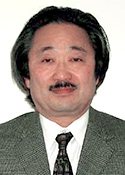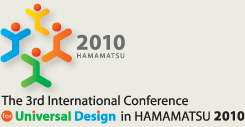The Design to Change the World Exhibition

CEO, Granma, Inc.: Japan
The Design to Change the World Exhibition, which was held for about a month starting in May, attracted some 20,000 visitors. The exhibition, which was covered by some media, attracted attention.
In recent years, there is a rising call within the international community on private companies to focus more on the social aspects of their businesses. This includes the Global Compact and MDGs outlined by the United Nations and Business Call to Action that encourages and promotes private-sector investment into low-income markets for realization of the MDGs. Against this background, more people in Japan have the desire to contribute to society through their work.
The Design to Change the World Exhibition displayed products that were designed to raise the standard of living of people living on low incomes and to allow people to live with dignity. The explanations about the stories that led to the designing of the products enabled those of us living in Japan to visualize the people's lifestyles in the local communities.
<Treadle Pump>
The treadle pump designed by the International Development Enterprises (IDE) addressed challenges in agriculture that much of the world's population depends on for living.
Agriculture is also one of the major industries in Bangladesh. During the dry season, however, farmers who have no means of irrigating land cannot cultivate crops. The treadle pump is made of bamboo and other materials that are readily available locally and can supply water to the fields even in farming villages that have no electricity supply. In 12 years, some 1.5 million farming households in Bangladesh bought the treadle pump, which had a major social impact of increasing the farmers' annual incomes by $150 million.
<ePassbook>
Also in Bangladesh, Kyushu University of Japan researched and developed a product that has contributed to poverty reduction. The product, which uses information and telecommunication technology, is the "ePassbook."
Bangladesh has a loan system that provides small loans at low interest rates and without the need to pay collateral. However, because the system had been managed manually, fraudulent practices and mistakes in calculation were common. Seeing this, Kyushu University developed an IC-card electronic passbook. It uses graphic design for people who are illiterate. It can operate on solar batteries and can also be recharged manually.
We focus on the preconditions for the designing of these world-changing products. Our thinking is based on the "cause-oriented" concept. The meaning of the word "cause" may include "principles," "challenges," and "factors." In advanced countries, the "market-oriented" approach of meticulously developing products based on people's needs and wants has been the norm. However, to build a system for sustainably changing the world in which the poor live based on the "cause-oriented" approach, we need to first make an effort to understand the intricacy of the problems involved, put the "local people," who are most acutely aware of the various problems rooted in the locality, at the center of product making, and draw out their ideas. We believe that this approach will help designers and engineers in advanced countries to be the most effective socially and prompt a chain reaction towards radical solution to the problems.


